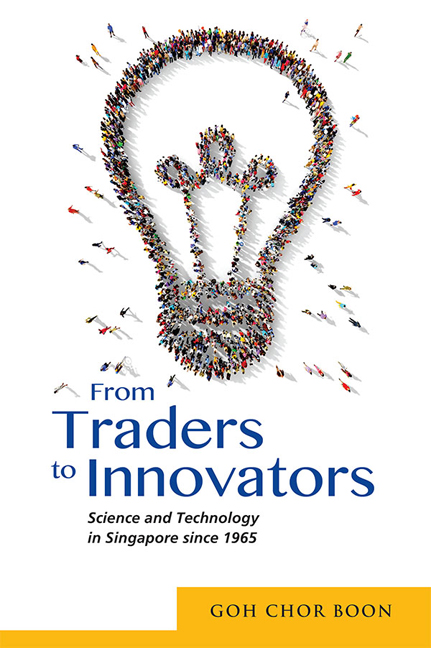Book contents
- Frontmatter
- Contents
- List of Abbreviations
- Introduction
- 1 From Dependency Theory to Creative Innovation
- 2 Surviving and Catching Up in the 1960s and 1970s
- 3 Developing a Technological Growth Trajectory in the 1980s
- 4 State Intervention and Technological Change
- 5 Nurturing a Scientific Culture
- 6 Sociocultural Attributes and R&D
- 7 Towards a Technologically Creative Society
- 8 Conclusion: Power of a Service-Brokerage Culture
- Bibliography
- Index
- About the Author
6 - Sociocultural Attributes and R&D
Published online by Cambridge University Press: 19 May 2017
- Frontmatter
- Contents
- List of Abbreviations
- Introduction
- 1 From Dependency Theory to Creative Innovation
- 2 Surviving and Catching Up in the 1960s and 1970s
- 3 Developing a Technological Growth Trajectory in the 1980s
- 4 State Intervention and Technological Change
- 5 Nurturing a Scientific Culture
- 6 Sociocultural Attributes and R&D
- 7 Towards a Technologically Creative Society
- 8 Conclusion: Power of a Service-Brokerage Culture
- Bibliography
- Index
- About the Author
Summary
The impressive economic performance of the East Asian economies since the 1970s has gained not only the attention of economists but increasingly social scientists as well. While not rejecting altogether economic explanations, this latter group of scholars had attempted to link the macroeconomic dynamism with cultural factors inherent in the societal systems of these countries. Though it would be unwise to attribute the so-called “East Asia miracle” solely to the predominance of positive cultural traits, they could, as postulated by Peter Berger, very well serve as a “comparative advantage” in the process of capitalist development.
The nature of technological creativity and innovation is affected by a society's culture and social structure. The specific motives and actions of parties involved with technological change do not crystallize or unfold in a vacuum. Instead, they do so within a background cultural context. The term “culture” here is broadly defined, in the words of Alex Inkeles, as “the grand total of all the objects, ideas, knowledge, institutions, the ways of doing things, habits, behaviour patterns, values and attitudes which each generation in a society receives and passes on — often in altered form — to its successor”. These cultural factors interact and influence each other to produce the “cultural system”. It is imperative that any account of a country's scientific and technological development be seen against the elements of its overall sociocultural-environmental system. Culture has a profound impact on the innovative capacity of a society. Innovation is a creative process, and the nature of creativity and innovation by which technological progress takes place is affected by the culture and social structure within which that change is occurring. The direction that technological change takes and the ways in which a culture puts scientific and technical knowledge to innovative use are dependent upon the belief systems of the culture, the opportunity and the ability to technologize, the motivation to do so, and the freedom to question and change, if necessary, the established characteristics of the culture. Without these technological imperatives, innovation does not take place.
Several studies, especially the Hofstede Indices or IBM Survey, have shown that the cultural system of a society may either foster or inhibit scientific and technological development.
- Type
- Chapter
- Information
- From Traders to InnovatorsScience and Technology in Singapore since 1965, pp. 140 - 167Publisher: ISEAS–Yusof Ishak InstitutePrint publication year: 2016

